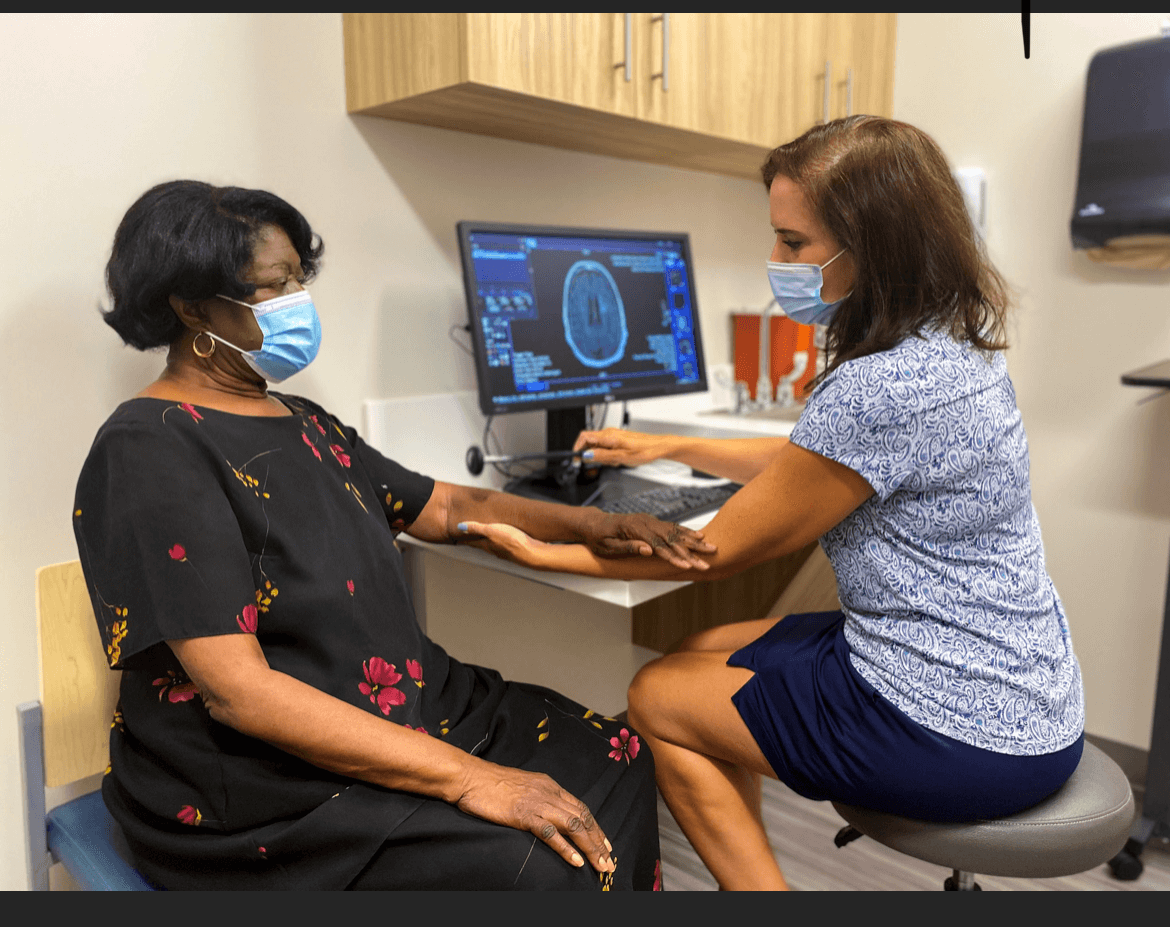Brain & Spine Care
Brain and Spine Care in New Orleans
Treatment for Neurological Disorders throughout Greater New Orleans
 When you suffer from a brain, spine, or other neurological ailment, you
need expert diagnosis, treatment, and management from compassionate healthcare
providers. Neurological health is responsible for the day-to-day aspects
of our lives, including memory, strength, coordination, and communication.
We offer care including a team of board-certified neurologists skilled
in treating brain and spine conditions with kindness and skill to guide
you toward recovery.
When you suffer from a brain, spine, or other neurological ailment, you
need expert diagnosis, treatment, and management from compassionate healthcare
providers. Neurological health is responsible for the day-to-day aspects
of our lives, including memory, strength, coordination, and communication.
We offer care including a team of board-certified neurologists skilled
in treating brain and spine conditions with kindness and skill to guide
you toward recovery.
For more information, please call 504.592.6577 from Monday through Friday from 8am-4:30pm.
What does a neurologist do?
Neurologists are physicians who specialize in disorders affecting the brain and spine, primarily any ailment impacting the central, peripheral, and autonomic nervous systems. A full neurological exam is the first step toward making an accurate diagnosis, and your neurologist will conduct several noninvasive, painless tests to determine what’s causing your brain or spine to malfunction.
We treat the following neurological conditions:
- Stroke: A stroke is a serious medical emergency when the brain is deprived of oxygen-rich blood and nutrients that causes nearly immediate brain cell death. Once brain cells die, they cannot be restored and the function they carried out cease permanently. Those who sustain a stroke often suffer from various physical, cognitive, and emotional challenges. If you suspect you or someone else is having a stroke, do not delay: Call 9-1-1 for immediate transportation to the hospital. Do not drive or have someone else drive you, as life-saving treatment can be administered by trained emergency medical technicians in the ambulance en route to the hospital. Symptoms of a stroke include facial drooping, arm weakness, and speech difficulties.
- Seizures: Uncontrolled electrical activity in the brain can cause a seizure. A seizure can happen because normal connection of nerve cells in the brain are interrupted. These episodes include temporary abnormalities such as muscle stiffness, twitching, or limpness. Not all seizures are alike, and symptoms vary. Most seizures last 10 to 60 seconds.
- Epilepsy: This chronic condition occurs when a person has had 2 or more unprovoked seizures as well as unusual brain activity resulting in unusual behavior and loss of awareness. Anyone regardless of their age, sex, or ethnicity can be affected, but symptoms vary widely – without a trained eye, some may not even recognize when a seizure takes place. Our neurologists are epilepsy and seizure specialists and use the latest technology to monitor and identify epilepsy with treatment, management, and support.
- Dementia: This term includes the loss of memory, judgment, social skills, language, problem-solving, and cognitive abilities that interfere with daily living. It is a very common condition that is treatable, but cannot be cured, because it is a chronic condition (life-long).
- Parkinson’s Disease: This neuromuscular, progressive movement disorder is characterized by tremors, muscle stiffness, and slowness of movement. Most people with Parkinson’s develop the disease around 60+ years of age. Early symptoms include minimal facial expression, soft or slurred speech, and the arms don’t swing as you walk. Over time, you may develop swallowing problems, fatigue, sleep disorders, incontinence, pain, and other symptoms. Although Parkinson’s disease is not curable, medication and other treatments such as physical therapy can significantly improve quality of life.
- Migraines: These severe, recurring headaches can seriously impact your quality of life as they cause throbbing pain, usually on one side of the head. Often, migraines are accompanied by nausea and extreme sensitivity to light and sound. Medication can help prevent or control migraines so they are less painful, as well as learning self-help remedies and making important lifestyle changes.
- Peripheral neuropathy: Nerve damage can cause peripheral neuropathies that range from carpal tunnel syndrome to the nerve damage brought on by diabetes. Common symptoms include tingling, numbness in the arms or legs, and a burning sensation in the hands and feet. The causes of peripheral neuropathy vary, but they can be caused by environmental factors or your genetics. Some have no known cause.
- Concussions, including second impact syndrome: A concussion is a type of traumatic brain injury caused by a sudden blow or jolt to the head, which can have serious consequences without medical intervention. They are often caused by sports or recreation activities, but may also be brought on by car accidents, work-related injuries, and falling. Symptoms include impaired vision balance, cognition, and some may fall unconscious. Because concussions are not visible to the naked eye, they can be difficult to recognize when physical, mental, or emotional symptoms begin. Second impact syndrome is a potentially fatal condition brought on by sustaining a second concussion before the previous concussion has had time to heal.
- And more
For more information, please call 504.592.6760 from Monday through Friday from 8am-4:30 pm.
